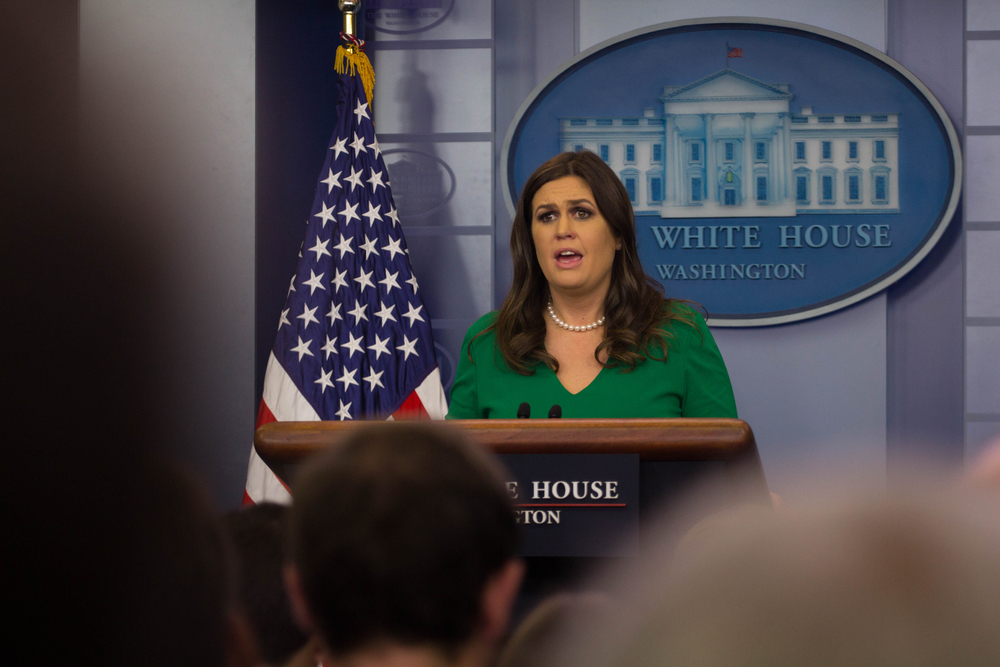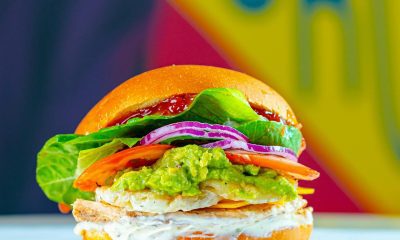Canada News
Possible good news for Canada on tariffs: White House hints ‘carve out’ coming
WASHINGTON—Canada may get a special “carve-out” allowing it to avoid the impact of U.S. President Donald Trump’s controversial steel and aluminum tariffs, a White House spokeswoman suggested Wednesday.
After days of drama and a last-minute diplomatic scramble, the White House is now hinting that the impending tariff announcement might have some particular exceptions based on national-security considerations for the U.S. neighbours.
“There are potential carve-outs for Canada and Mexico based on national security — and possibly other countries as well, based on that process,” Sarah Sanders said during her daily media briefing.
“That would be a case-by-case and country-by-country basis.”
The formal tariff announcement could come as early as Thursday.
Intense debates have been going on within the Trump administration about whether to offer any exemptions — some want a hardline approach where the tariffs apply to every country; some want the opposite, meaning full relief for Canada and other allies.
And this week the administration has been hinting at a possible middle-of-the road approach: temporary relief for Canada and Mexico, with the threat of tariffs as a U.S. negotiating weapon at the NAFTA bargaining table.
Prime Minister Justin Trudeau said he wants to withhold judgment until the final details are out.
“We know from experience that we need to wait and see what this president is actually going to do,” Trudeau said during a news conference just the Sanders briefing.
“There’s many discussions on this going on in the United States right now. We are going to make sure we’re doing everything we need to do to protect Canadian workers — and that means waiting to see what the president actually does.”
A full-court, 11th-hour diplomatic press was underway Wednesday.
It occurred in Ottawa, Washington, New York and even in Texas, where a number of Canadian officials were reaching out to American peers — some of whom had been pleading the Canadian case.
The fact that Canada might be hit with tariffs had actually become a leading talking point for critics bashing the Trump plan. From Capitol Hill, to cable TV, to the Wall Street Journal editorial pages, numerous commentators ridiculed the idea of a supposed national-security tariff applied to Canada.
A poll this week suggested the measures are unpopular.
In the final diplomatic push, Foreign Affairs Minister Chrystia Freeland spoke with congressional leader Paul Ryan, and Canadian Ambassador David MacNaughton was to dine Wednesday with U.S. national security adviser H.R. McMaster.
Defence Minister Harjit Sajjan chatted with Pentagon counterpart James Mattis, UN ambassador Marc-Andre Blanchard spoke with U.S. counterpart Nikki Haley, and Natural Resources Minister Jim Carr raised the issue with Energy Secretary Rick Perry at a conference in Texas.
Trudeau, meanwhile, spoke with the president this week.
A source familiar with the last-minute scramble likened it to a high-stakes, reality-show contest, with a drama-courting U.S. president at the centre of the production: “(It’s a) last-episode-of-‘The-Apprentice’ kind of thing.”
Canada is the No. 1 exporter of steel and aluminum into the U.S., which is looking to impose tariffs under a rarely used national-security provision in a 1962 law, which some critics have called either illegitimate or likely to start copycat measures that threaten the international trading system.
Some trade hawks in the administration argue the tariffs must apply to everyone to be effective. If the goal is to keep out low-cost international steel, with excess Chinese supply dragging down the entire global market, they say the U.S. can’t allow any supply in at low global prices.
The counter-argument was that these measures might help some American steel workers, but hurt far more workers in other sectors which use steel, damage the economy as a whole and poison America’s relationships with the rest of the world.
The biggest U.S. business lobby is among those pushing back.
“These new tariffs would directly harm American manufacturers, provoke widespread retaliation from our trading partners, and leave virtually untouched the true problem of Chinese steel and aluminum overcapacity,” U.S. Chamber of Commerce president Tom Donohue said Wednesday.
“Alienating our strongest global allies amid high-stakes trade negotiations is not the path to long-term American leadership.”
As for the specific design of a so-called carve-out, there are different ways to do it, according to one trade consultant who has been counsel in numerous cross-border steel disputes.
One is a full exemption. Another, says Peter Clark, is to link application to the successful conclusion of NAFTA. And a final one involves a phase-in exempting current parterships, like in the auto sector.
“It (would) take time to deal with existing cross-border contracts which can last for years,” Clark said.
“They cannot be redone overnight.”






















